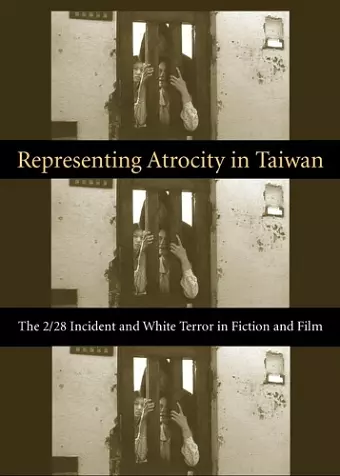Representing Atrocity in Taiwan
The 2/28 Incident and White Terror in Fiction and Film
Format:Hardback
Publisher:Columbia University Press
Published:14th Dec '07
Currently unavailable, and unfortunately no date known when it will be back

A landmark destined to be the standard reference for many years to come. -- William Tay, professor emeritus, University of California, San Diego Representing Atrocity in Taiwan opens a new and brilliant chapter in our understanding of the White Terror in Taiwan. Sylvia Li-chun Lin examines how Taiwanese novels and films both elucidate and evade the hidden atrocities of the Chiang Kai-shek/Chiang Ching-kuo era. Her uncompromising critical approach is a rare virtue, well suited for uncovering false pieties and misguided claims to authenticity based on ethnicity. -- Jeffrey C. Kinkley, professor of history, St. John's University
Drawing on secondary theoretical material as well as her own original research, the author conducts an analysis of the political, narrative, and ideological structures involved in the fictional and cinematic representations of the 2/28 Incident and White Terror.In 1945, Taiwan was placed under the administrative control of the Republic of China, and after two years, accusations of corruption and a failing economy sparked a local protest that was brutally quashed by the Kuomintang government. The February Twenty-Eighth (or 2/28) Incident led to four decades of martial law that became known as the White Terror. During this period, talk of 2/28 was forbidden and all dissent violently suppressed, but since the lifting of martial law in 1987, this long-buried history has been revisited through commemoration and narrative, cinema and remembrance. Drawing on a wealth of secondary theoretical material as well as her own original research, Sylvia Li-chun Lin conducts a close analysis of the political, narrative, and ideological structures involved in the fictional and cinematic representations of the 2/28 Incident and White Terror. She assesses the role of individual and collective memory and institutionalized forgetting, while underscoring the dangers of re-creating a historical past and the risks of trivialization. She also compares her findings with scholarly works on the Holocaust and the aftermath of the atomic bombings of Japan, questioning the politics of forming public and personal memories and the political teleology of "closure." This is the first book to be published in English on the 2/28 Incident and White Terror and offers a valuable matrix of comparison for studying the portrayal of atrocity in a specific locale.
The result is a complicated and neglected topic managed economically and lucidly in a volume that will surely intervene in Chinese cultural studies but also will prove attractive to anyone concerned with the overarching issue of atrocity and the literary and cinematic representation of the 'disappeared.' The Rocky Mountain Review
ISBN: 9780231143608
Dimensions: unknown
Weight: unknown
256 pages